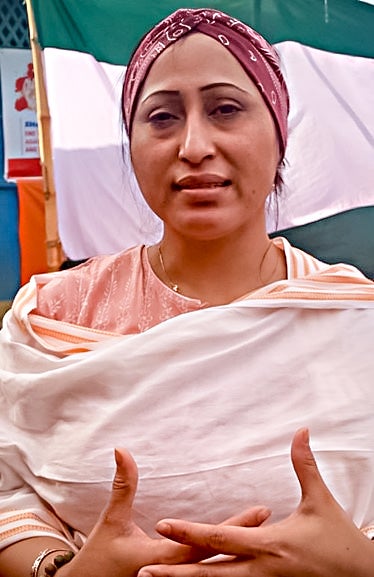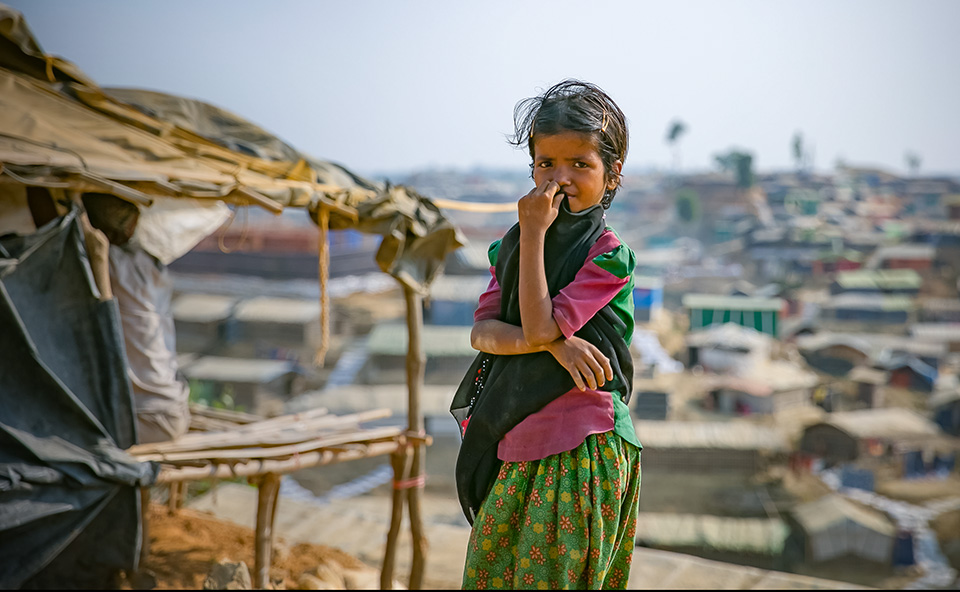In Bangladesh, a lawyer-activist helps Rohingya survivors of violence
Date:

Cox’s Bazar, Bangladesh — Lawyer and human rights activist Razia Sultana has strived to ease the plight of the Rohingya, advocating for their cause in international forums and helping them cope with trauma in refugee camps in Bangladesh.
“We do not live a normal life,” she said in an interview with UN Women late last year. “The camps in Cox’s Bazar are crowded and we cannot leave freely. We are stateless persons. We are not even Bangladeshis. We have no address — This life is not for anyone.”
Sultana was born in Myanmar in 1973 to ethnic Rohingya parents. She grew up in Bangladesh, where her father had migrated to grow his business. With her father’s unwavering support, she pursued her dream of practicing law, a virtually unprecedented path for a woman like her at that time.
In 2012, Sultana began using her legal expertise to advocate for the cause of the Rohingya, a mostly Muslim ethnic minority who have long been persecuted in Myanmar.
In 2014, she started working with Rohingya women and girls in the camps. The situation reached a crisis point as attacks by security forces in Myanmar since August 2017 sent a massive new exodus — more than half of them women and girls — into Cox’s Bazar, swelling the camps to more than 900,000 residents.

“We need to focus on peace, If problems arise, where will the Rohingya go?”
Sultana represented her people at the United Nations Security Council Open Debate on Sexual Violence in Conflict, held in April 2018. She told the meeting that she had documented the rapes of more than 300 women and girls by Government troops, and that some rape victims were mutilated and burned alive. The scale and breadth of the attacks showed that rape was systematically planned and used as a weapon of war against the Rohingya, she said.
“The international community, especially the Security Council, has failed us,” Sultana said at the meeting. “This latest crisis should have been prevented if the warning signs since 2012 had not been ignored.”
The Myanmar Government must address the central questions of Rohingya citizenship, rights, freedom of movement, and equality before the law, she said.
In the camps, the RW Welfare Society (RWWS) that Sultana founded in January 2018 raises awareness about human trafficking, provides mobile medical support, distributes clothing, and gives psychosocial support to traumatized women. The organization has housed 200 widows and 600 orphans and schooled more than 600 children, according to its website.
Sultana’s project to promote the resilience of Rohingya women seeks to help the most vulnerable survivors of the military attacks. Many live in Camp 14; there, single mothers account for 14 percent of the total number of families; families with vulnerable elderly, 5 percent; and families with members with disabilities, 3 per cent, the RWWS website says.
A group of 60 female volunteers are trained to be peer supporters and form a support community network. They regularly visit homes to counsel women who have suffered trauma, and who will, in turn, counsel other women. A space was to be built where Rohingya women could plan group activities and manage the support system.
UN Women’s Multi-purpose Women’s Centers in the camps are places where Sultana’s organization can meet with Rohingya women and learn more about their humanitarian needs.
Sultana also works with host communities in Cox’s Bazar to combat the negative stereotypes of the Rohingya.
“We need to focus on peace,” Sultana says. “If problems arise, where will the Rohingya go?”
In March, Sultana received the United States’s International Women of Courage Award for her work with Rohingya refugees. The award recognizes women worldwide who have advocated for peace, justice, human rights, gender and women’s empowerment, often at great personal risk and sacrifice, a U.S. State Department statement said.